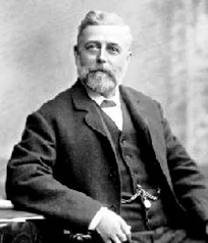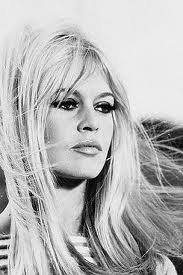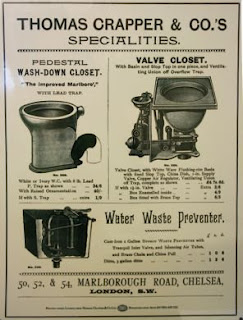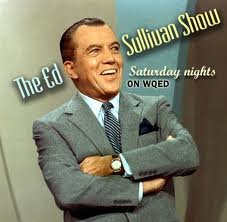A bank is a financial institution that accepts deposits from the public and creates a demand deposit while simultaneously making loans. Lending activities can be directly performed by the bank or indirectly through capital markets.
Whereby banks play an important role in financial stability and the economy of a country, most jurisdictions exercise a high degree of regulation over banks. Most countries have institutionalized a system known as fractional-reserve banking, under which banks hold liquid assets equal to only a portion of their current liabilities. In addition to other regulations intended to ensure liquidity, banks are generally subject to minimum capital requirements based on an international set of capital standards, the Basel Accords.
Banking in its modern sense evolved in the fourteenth century in the prosperous cities of Renaissance Italy but in many ways functioned as a continuation of ideas and concepts of credit and lending that had their roots in the ancient world. In the history of banking, a number of banking dynasties – notably, the Medicis, the Fuggers, the Welsers, the Berenbergs, and the Rothschilds – have played a central role over many centuries. The oldest existing retail bank is Banca Monte dei Paschi di Siena (founded in 1472), while the oldest existing merchant bank is Berenberg Bank (founded in 1590).
History
Banking as an archaic activity (or quasi-banking) is thought to have begun as early as the latter part of the 4th millennium BCE, to the 3rd millennia BCE.
Early modern
Sealing of the Bank of England Charter (1694), by Lady Jane Lindsay, 1905.
Fractional reserve banking and the issue of banknotes emerged in the 17th and 18th centuries. Merchants started to store their gold with the goldsmiths of London, who possessed private vaults, and who charged a fee for that service. In exchange for each deposit of precious metal, the goldsmiths issued receipts certifying the quantity and purity of the metal they held as a bailee; these receipts could not be assigned, only the original depositor could collect the stored goods.
Gradually the goldsmiths began to lend money out on behalf of the depositor, and promissory notes (which evolved into banknotes) were issued for money deposited as a loan to the goldsmith. Thus by the 19th century we find in ordinary cases of deposits of money with banking corporations, or bankers, the transaction amounts to a mere loan or mutuum, and the bank is to restore, not the same money, but an equivalent sum, whenever it is demanded and money, when paid into a bank, ceases altogether to be the money of the principal (see Parker v. Marchant, 1 Phillips 360); it is then the money of the banker, who is bound to return an equivalent by paying a similar sum to that deposited with him when he is asked for it. The goldsmith paid interest on deposits. Since the promissory notes were payable on demand, and the advances (loans) to the goldsmith's customers were repayable over a longer time-period, this was an early form of fractional reserve banking. The promissory notes developed into an assignable instrument which could circulate as a safe and convenient form of money backed by the goldsmith's promise to pay, allowing goldsmiths to advance loans with little risk of default. Thus the goldsmiths of London became the forerunners of banking by creating new money based on credit.
The Bank of England originated the permanent issue of banknotes in 1695. The Royal Bank of Scotland established the first overdraft facility in 1728. By the beginning of the 19th century Lubbock's Bank had established a bankers' clearing house in London to allow multiple banks to clear transactions.
The Rothschilds pioneered international finance on a large scale, financing the purchase of shares in the Suez canal for the British government in 1875.
If you want to read more, go here: https://en.wikipedia.org/wiki/Bank
From Mr. Food
- 4 cups water
- 1 stick butter
- 2 teaspoons salt
- 4 cups instant potato flakes
- 1/2 cup milk
- 1 large onion, diced
- 1/4 cup chopped fresh parsley
- 1 cup all-purpose flour
- 3 eggs, beaten
- Vegetable oil for frying (1/2 inch deep in large skillet)
- In a large saucepan, combine water, butter, and salt; bring to a boil. Remove from heat, add potato flakes, and mix. Add milk, then mix again until smooth; let cool. Add onion, parsley, flour, and eggs; mix well.
- In a large skillet, heat oil. Using about 1/4 cup of mixture per pancake, form pancakes and fry in skillet 2 minutes on each side, or until golden. Drain pancakes on paper towels. Serve immediately.

1901 – Ed Sullivan, American television show host (d. 1974)
1934 – Brigitte Bardot, French actress. Wow, 6 "partners" and 4 husbands! Busy woman!

1987 – Hilary Duff, American actress and singer
National Drink Beer Day toasts that malty elixir on September 28th, annually. Just as the Oktoberfest season comes to an end, the day reminds us to enjoy the world’s most popular adult beverage.
Beer lovers have more selection than ever before in the ale and lager market. An explosion in the craft beer industry keeps the competition and the flavors robust, churning out new flavors seasonally. Beer connoisseurs quench their thirst with flavors drastically different from their grandfather’s beers. Root beer to raspberry, caramel, and hints of herbs all tickle the palate when it comes to artisanal beers.
However, you don’t have to drink a special brew to celebrate the day. Drink your favorite stand by or branch out – whichever you prefer. Around the country, and from around the world, a wide assortment of beers offers plenty of ways to celebrate. Whether you call your mug full of brew a barley pop or cerveza, the day is worth celebrating.
The best way to celebrate is by enjoying a glass of beer. As always, celebrations are better when surrounded by others who celebrate with you. So, invite friends, family, coworkers, too. Join them at a local pub or tavern. Or invite them to your home.
Another way to celebrate includes recognizing your servers, bartenders and brewers. Celebrate them with a toast as you take your first frothy sip.
NATIONAL DRINK BEER DAY HISTORY
While National Day Calendar® continues researching the origin of this delicious beverage holiday, it’s interesting to note it lands on the birth of Arthur Guinness, the founder of Guinness Brewery. However, if you’re looking for more ways to celebrate, we have you covered.
Beer Drinking FAQ
Q. What is a brewmaster?
A. Brewmaster oversees operations at a brewery, develops recipes, and is a seasoned brewer. A brewmaster may also supervise other brewers in the company.
Q. What is a beer flight?
A. A beer flight includes 3-5 small samples of beers offered in a pub, brewery or restaurant. The samples are usually 5-7 ounces. The bartender usually lines each small glass from lightest to darkest, strongest brews. Drinking each sample in that order will provide you with the best tasting experience.












